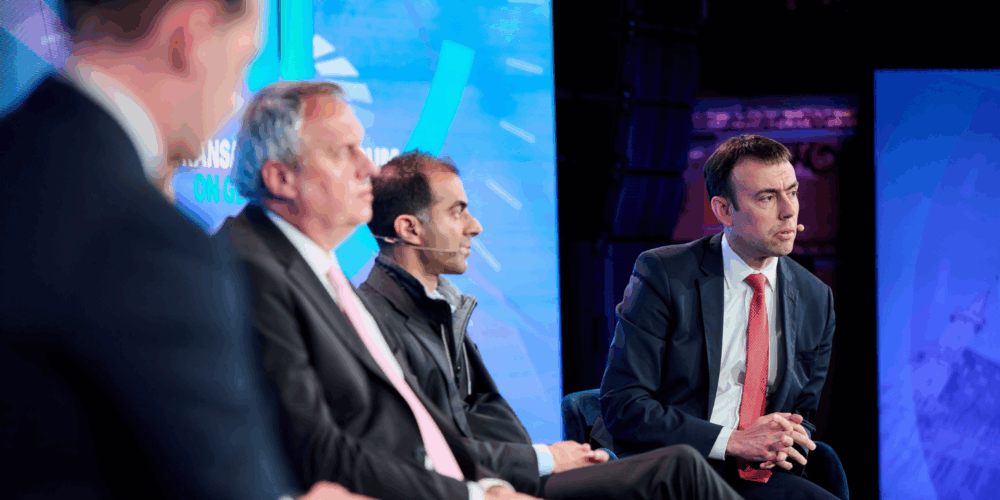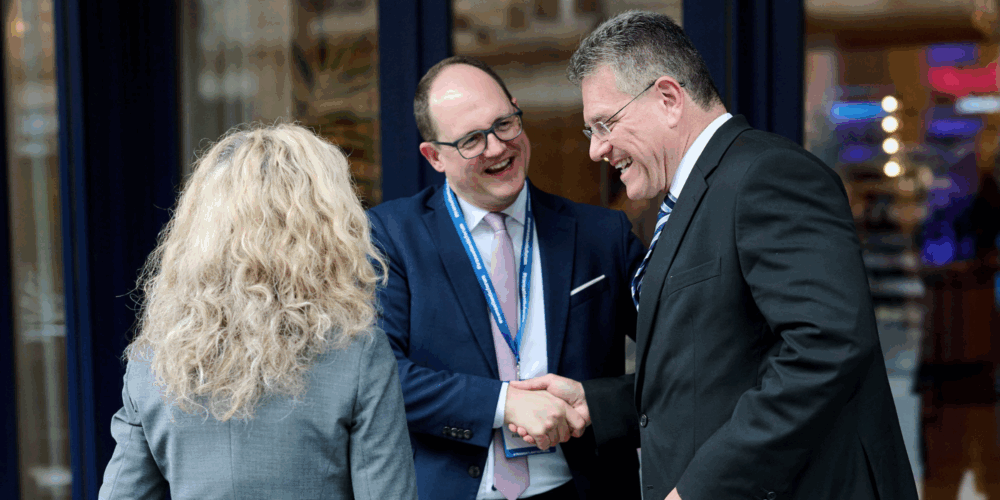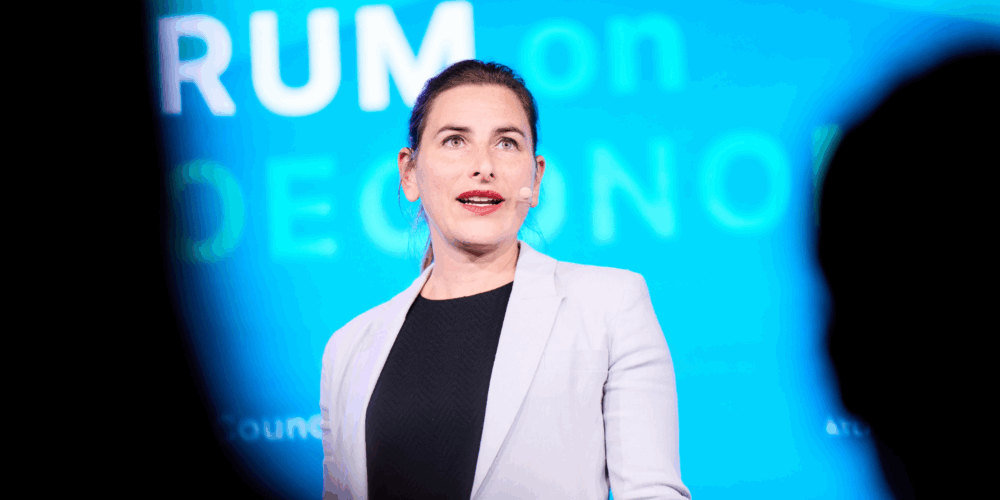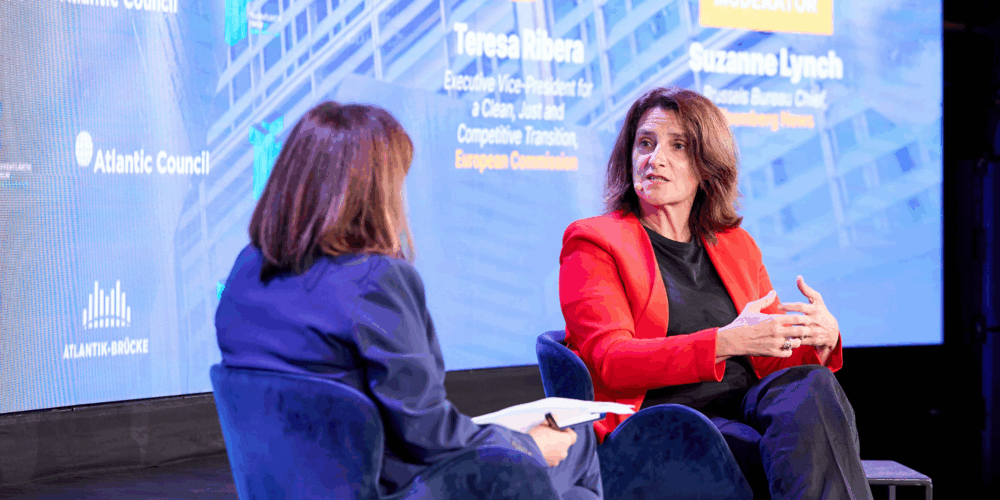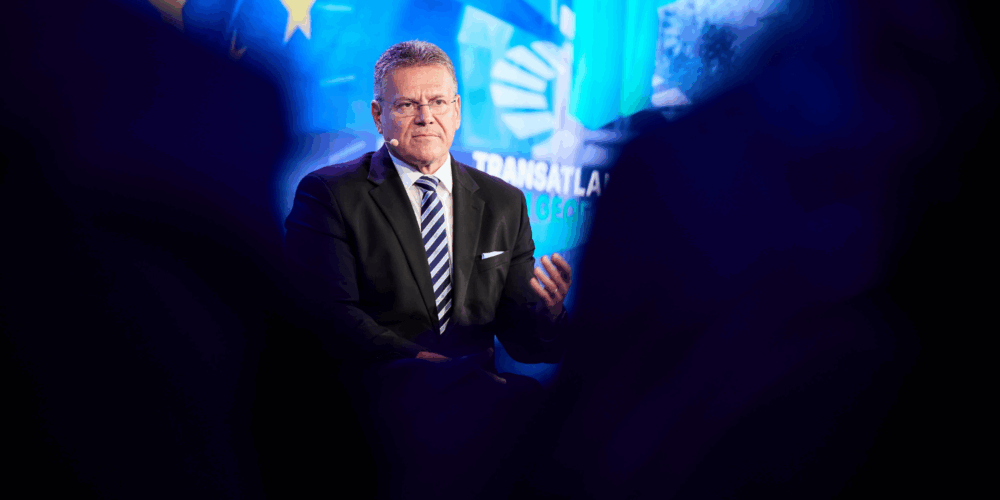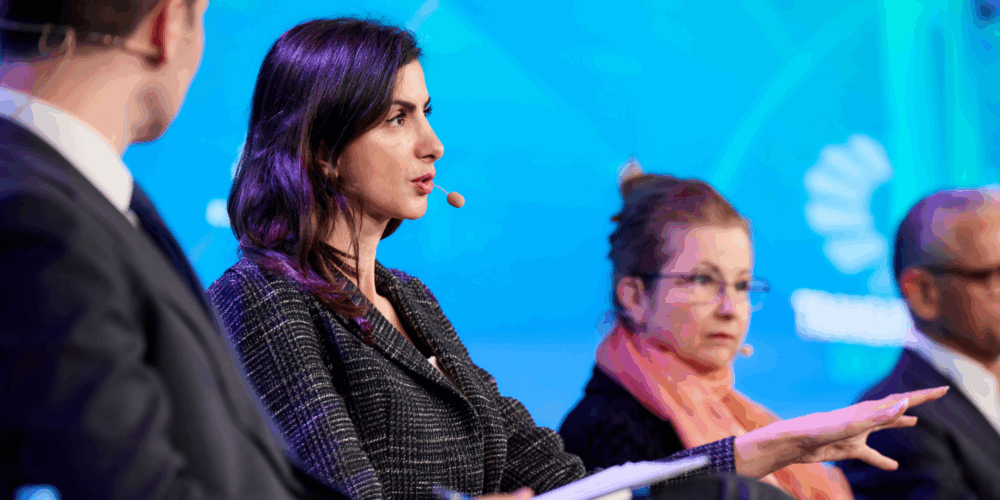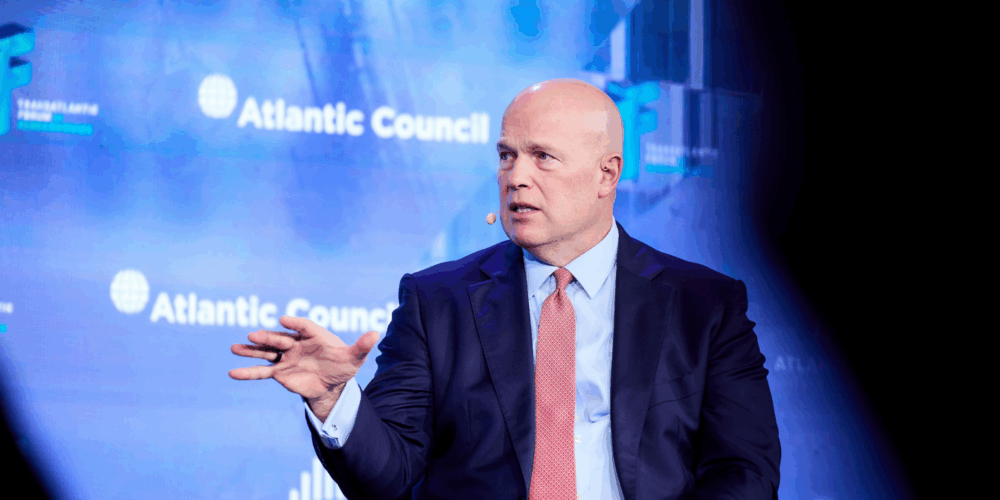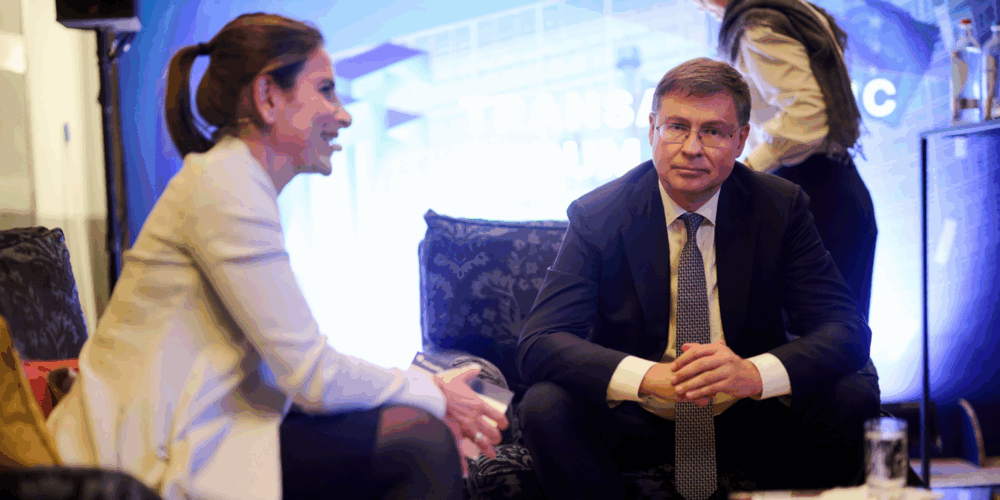Responding to Global Shifts
The 4th Transatlantic Forum on Geoeconomics took place in Brussels at a time of rising global tensions and economic uncertainty. It emphasised the urgent need for reinforced NATO commitments, increased European defence spending and a renewed US-EU partnership in trade and AI technology.
This year, Brussels—at the heart of European policy-making—hosted the 4th Transatlantic Forum on Geoeconomics on 30 September 2025. The discussions centred on transatlantic priorities, framed by escalating geopolitical tensions and growing economic volatility. The agenda drew heavily on high-level exchanges, most notably with US Ambassador to NATO Matthew Whitaker and EU Trade Commissioner Maroš Šefčovič, who brought both candor and nuance to their respective fields.
“America will protect every inch of the Alliance’s territory.”
Ambassador Whitaker sent a clear signal of enduring American commitment to NATO’s collective defense, insisting that “every inch” of the Alliance’s territory will be protected. He described how sustained diplomatic engagement had moved President Trump to a position of robust support for Ukraine’s sovereignty, emphasizing that a united front is needed to impose real costs on Moscow. Recent Russian drone incursions into NATO airspace—over Poland and the Baltic countries—were cited as stark reminders of persistent threats, but also as proof of the Alliance’s responsive capabilities and deterrence posture. Whitaker voiced frustration, however, that some European allies still “drag their feet” on defense spending, warning that failing to reach the newly established 5 percent GDP benchmark could undermine both credibility and deterrence. For Whitaker, a secure Alliance is inseparable from balanced burden-sharing—an aspiration now hard-wired into the “Hague defense commitment” but requiring vigilance to ensure meaningful year-over-year increases.
“Fostering a climate for innovation will be key to both economic and security resilience.”
On the European side, Commissioner Šefčovič reflected on a fundamental transformation: Europe, he argued, began as a peace project but is now compelled to reassess its security and defense posture amid rapidly shifting geopolitical realities. He stressed the importance of treating the US as a strategic partner—not only by stepping up defense investment, but also by making Europe’s own defense sector more attractive to investors. Echoing Whitaker, Šefčovič acknowledged that without sustained economic growth, it is simply not possible for any government to invest 5 percent of GDP in defense—and that fostering a climate for innovation will be key to both economic and security resilience.
Some panels focused on trade and tariffs. The participants agreed that the current moment marks the beginning of a “new chapter in trade,” characterized by ongoing uncertainty and drastic shifts in global goods traffic. New US tariffs would force Europe to rethink its supply chains. In addition, Europe would have to carefully consider how much of its steel industry it would allow to migrate to China. Anahita Thoms, Partner, Head of Germany’s International Trade Practice, Baker McKenzie, made it clear that “tariffs hurt, but uncertainty destroys” and that a return to the old global trade order was not to be expected. Instead, Europe must diversify its trade relations, for example through new agreements with Mercosur, while at the same time stabilizing and deepening transatlantic economic relations, the panelists emphasized.
„Deep partisan devide is a real internal threat of the position of the US dollar.“
Another thread running through the Transatlantic Forum was the question of the US dollar’s global standing. Both American and European speakers noted that the dollar’s supremacy now faces internal threats from the ideological split in American politics. ‘We don’t really know when the decline of the US dollar started,’ said Selesha Mohsin, Bloomberg’s senior Washington correspondent. „Deep partisan devide is a real internal threat of the position of the US dollar.“ This has sparked a broader European reevaluation of payment systems and a search for greater financial sovereignty, with calls to create new platforms less exposed to external shocks.
„Europe is the only world region where the demand for energy has declined which is a sign of deindustrialization.“
In the critical field of energy, the Transatlantic Forum stressed that Europe is unique as the only major region experiencing declining demand. Andrew Puzder, the new US ambassador to the European Union, said: „Europe is the only world region where the demand for energy has declined which is a sign of deindustrialization.“ This trend, conference voices emphasized, must be confronted if Europe is to avoid long-term erosion of its industrial base and safeguard energy security.
„The AI race is decided by capital and talent.”
Finally, the discussion turned to artificial intelligence and digital competitiveness. Europe’s lag in generative AI adoption was framed as both a challenge and a call to action. „Only 37 percent of German companies use generative AI“, said Michael Hüther, Director & Member of the Presidium, German Economic Institute (IW). „AI is important for Germany to come back to the mid range of economic groth“, he stressed. And Jens Wiese, managing partner at Leitmotif, added: „The AI race is decided by capital and talent. European companies would be illed advised to sacrifice the transatlantic ties by trying to search more AI opportunities in China“.
The speakers at the Transatlantic Forum agreed that closing this gap will require pragmatic regulation, capital investment, and—most importantly—retaining the strength of the transatlantic relationship rather than seeking shortcuts in collaboration with other players. For now, only the US possesses the scale and dynamism needed to lead in AI, highlighting the limits of Europe’s fragmented financial markets.
Throughout the 4th Transatlantic Forum, the message was clear: the challenges of security, economic competitiveness, innovation, and resilience can only be met through renewed transatlantic solidarity—anchored in both shared values and real investment on both sides of the Atlantic.
Briefings on the Conference Topics
The following policy briefs offer a deep dive into the conference topics:
“Points of Vulnerability in the Battery Cell Industry” – Kai Müller, Chief Financial Officer of PowerCo SE, and Sören Pippart, Senior Expert for Public Affairs at PowerCo SE, outline Germany’s weaknesses and possible courses of action in the battery sector.
“Waiting for the Big Bang: Executing the European Defense Build-Up in Germany” – Robin Fehrenbach, Head of Analysis and Documentation at Atlantik-Brücke, Jakob Flemming, Senior Program and Research Manager at Atlantik-Brücke, and Julia Friedlander, CEO of Atlantik-Brücke, describe how Germany is attempting to become defense-ready in record time.
“The dollar in the fight for US primacy” – Martin Mühleisen, former official at the International Monetary Fund (IMF) and Nonresident Senior Fellow at the Atlantic Council’s GeoEconomics Center, analyzes how the US under President Trump uses economic policy as a tool to advance foreign policy priorities.
“How to dismantle a reserve currency” – Daniel McDowell, Nonresident Senior Fellow at the Atlantic Council’s GeoEconomics Center, reflects on whether the days of the dollar as a reserve currency are numbered and whether the euro is ready to take its place.
“The Road to Turnberry” – Elizabeth Baltzan, Senior Fellow at the Atlantic Council GeoEconomics Center and former advisor to the US Trade Representative, assesses the latest trade deal between the European Union and the United States.
“The summer of AI action plans” – Alisha Chhangani, Assistant Director at the Atlantic Council GeoEconomics Center, and Ananya Kuma, Deputy Director, Future of Money, at the Atlantic Council GeoEconomics Center, analyze the widening gap between the US, China, and Europe on artificial intelligence.
Watch a look back at the forum here:
Watch the full recording of the Transatlantic Forum here:
Watch here exclusive Video interviews with the Pannelists:









